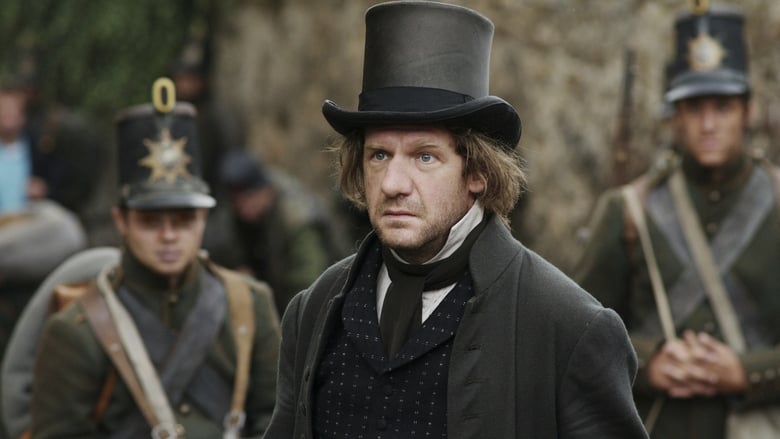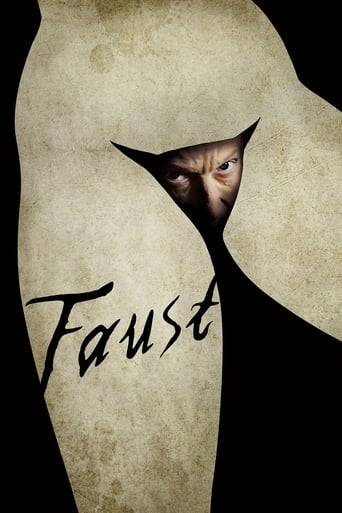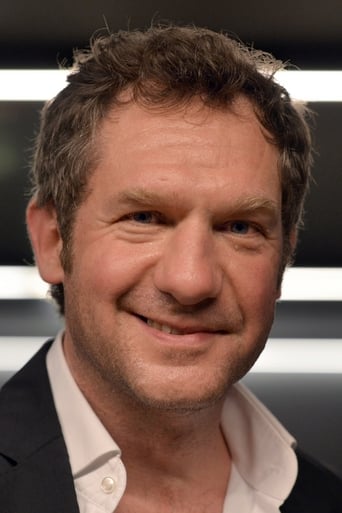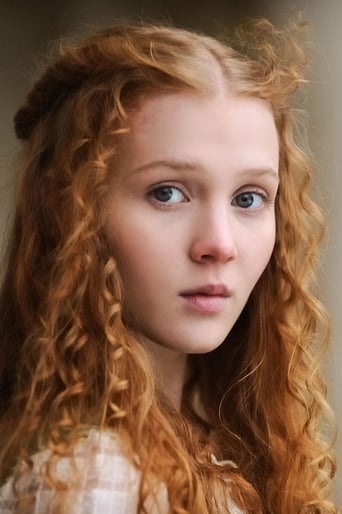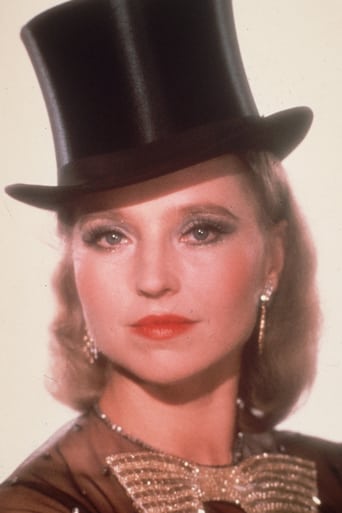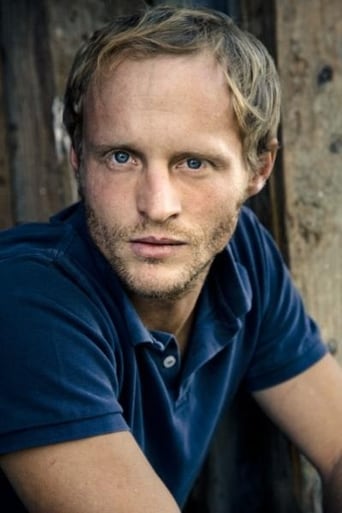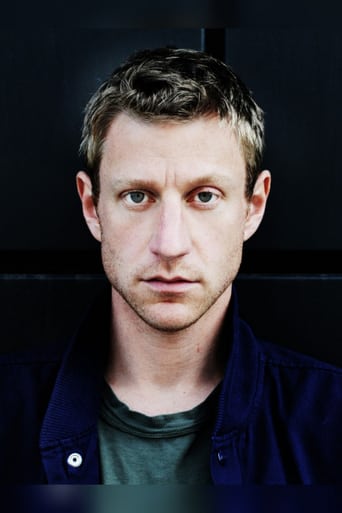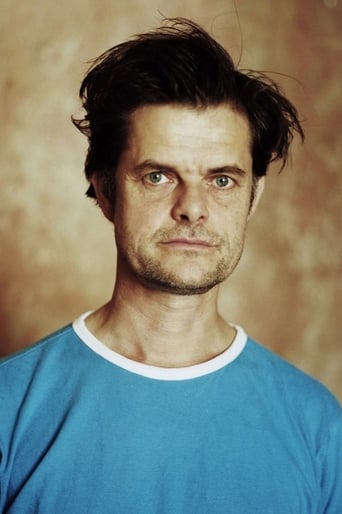A doctor in early 19th-century Germany becomes infatuated with the sister of a man he unintentionally killed and bargains with the Devil incarnate to conjure their union in exchange for his soul.
Reviews
Just what I expected
It's easily one of the freshest, sharpest and most enjoyable films of this year.
It is a whirlwind of delight --- attractive actors, stunning couture, spectacular sets and outrageous parties.
It’s sentimental, ridiculously long and only occasionally funny
Aleksandr Sokurov's take at Faust is a courageous act. Yet, my issues with this movie have nothing to do with the discussion whether a Russian director might understand the essence of Goethe's work. This is a futile debate, because Sokurov comes closer to Goethe than an average Westerner to Russian classics, as displayed in Joe Wright's Anna Karenina (2011).In Faust, Sokurov did what he's done before. There are rather realistic, almost documentary images and there are dream-like sequences. We've seen the former in, for example, the trilogy of Moloch (1999), Taurus (2001) and The Sun (2005). And we've seen the latter in, for example, Russian Ark (2002) and Alexandra (2007). So what went wrong?Again, i'm expressing my views here and won't try to judge Sokurov's talents and abilities. In Faust we kick off with the daily work of Dr. Faust and progress toward the space beyond reality. Whether it is a higher plane of existence or main character's hallucination is left unclear, yet it portrays well his inner state, triggered by malnutrition and selling the soul. Personally, at a certain point i found this movie difficult to watch...
Faust has quite rightly fallen under everyone's radar. I had never heard of it, until I saw it in a list someone made. It looked interesting, and then I read that it made one of my all time favourite directors, Darren Aronofsky cry. He has also infamously stated that Faust is the kind of film that has the power to change your life, or something along those lines. I then watched the trailer and it looked intense, powerful and not too much unlike Darren's own operatic masterpiece, Black Swan, which happens to be possibly my favourite film of all time. Thus of course I was sold. I bought the film on blu ray for £6.26 and was extremely excited to give it a watch. I went into Faust very open-minded. More than open-minded because I was honestly looking forward to it, I was expecting a beautifully intense and dream-like film, but unfortunately that is not what I received.The highest point in Faust is the brilliant opening shot which gracefully glides through the sky, where a mirror is bizarrely floating. We then pass underneath the clouds to reveal some awesome mountains and a village. It's a brilliant shot, reminiscent of Baz Luhrman's Moulin Rouge! We then get a nice close-up of a dead man's penis and some grisly depictions of an autopsy. It's here that the film slowly goes downhill, or rather curiously meanders down a dull path which should hopefully cure anyone of insomnia. A lot of reviewers seem concerned that the film is not a direct re-telling of the Faust legend. Unluckily for me, I have never read or seen anything to do with Goethe's Faust, which is a shame because it may have helped me to understand what was going on, as I was sometimes lost.My first problem with the film is that it has been unnecessarily boxed up. By this I mean that the film has black bands either side of the screen, which makes it more difficult to appreciate one of it's biggest redeeming features, the visuals. I don't see the point in doing this, unless it's only on the UK blu ray version of the film, which by the way, is not blu ray quality! It's also very easy to get lost in the film, and not in a good David Lynch kind of way, but a tedious way. I watch a lot of subtitled films, because I have a passion for foreign cinema, but even I found it difficult to keep up with. Someone is always talking at quite a brisk pace, meaning that you've got to keep up with the subtitles, meaning that a lot of the visuals get lost. The dialogue is also quite boringly pretentious with talks about philosophy and the like.However, if you strip back the story of the film there really isn't too much to it. It's just about a man who befriends an old man (who I think is supposed to be the devil) and he randomly falls for a young bereaved woman, and decides to sign his soul away in order to spend a night with her. But for some reason the film has been ludicrously padded out to 2 hours 20 minutes (it feels longer). Much of the film just follows Faust as he plods around with the devil, who rambles on for non-stop about things I don't entirely understand. It's the walking equivalent to a road movie, only nothing very interesting happens. I found much of it very boring, but I stuck with it.Faust isn't all bad though. It's at its most interesting when it's using surrealism to a bizarre and sometime unsettling effect. There's a monkey on the moon, an old man with a body like Danny De Vito in Batman Returns and a small person in a jar made from the liver of a donkey. Unfortunately these moments are few and far between. The film is much more interesting in lecturing the audience through boring characters who don't really develop or interest in any way. The film is also very often fantastic to look at. I loved how the film looked like it had all the colours drained from it and the locations were rich with period detail. The costumes were also lavish. The production values are actually quite excellent for an unknown German film. Unfortunately the screenplay isn't.Faust isn't the most boring film I've ever seen, but then again you're reading a review written by a poor chap who has sat through such cinematic stimulation as Import/Export and Uzak. Two of the most boring films on the planet. Faust doesn't come close to the level of boredom they caused, but if you've seen them then you'll know that that really isn't saying a lot. Faust is boring and has little plot or characters that capture your attention. It does have sporadic moments of creativity and surrealism, but there aren't enough of these moments to warrant it being watched. I think it's a film strictly for pseuds. Unfortunately I failed to find it intense, powerful or life changing. Ironically Faust is a film with no soul, or perhaps that's the point. I don't know. All I know is that I wasted £6.
This adaption orients itself on the original and legendary character of Dr. Faustus, but not in the Goethe version. As Dr. Faust is not an invention of Goethe, but actually a 15th century German legendary character, Sokurov portrays here the original story at its source. Faust is not driven by the wish to gain esoteric knowledge, but knowledge of how to seduce Margarethe as quickly as possible. Here lies the core: ANY character, even the ones that are not relevant to the story at all, is portrayed suffering from heavy psychological disorders. You name it, you find it: phobias, generalized anxiety disorder, social anxiety disorder, panic disorder, agoraphobia, obsessive-compulsive disorder, post-traumatic stress disorder, schizophrenia, delusional disorder, schizoaffective disorder, antisocial personality, borderline personality, histrionic and narcissistic personality disorders, even paraphilia (sexual arousal to objects, situations, or individuals that are considered abnormal or harmful to the person or others) is displayed by Mephisto, who is shown in this adaption as Moneylender. Wagner, who is Faust's student is shown suffering from classic ego-dystonic sexual orientation. This is actually what the whole adaption seems to be about: showing various characters with heavy psychological disorders who are fitted together in the story-line of the legendary character Dr. Faustus. The idea that Sokorov seems to have intended to portray is that the sexual force is the actual driving force of not only Dr. Faustus, but of most people in the sense of a primal force. My personal feeling is that the portrayal of psychological disorders is not helping to give the story-line of the legendary Dr. Faustus more appeal, but is as depiction of the human soul as dark cabinet unique as such and Faustian in itself as adaption. If you enjoy viewing a world of heavily disturbed personalities that are credibly acted out, this is your movie. If you want to see a movie that saves you reading Goethe's Faust, go find another movie. My vote: 6.5 of 10.
Russian screenwriter and director Alexandr Sokurov's fifteenth feature film which he wrote, is a loose adaptation of the classic German legend "Faust" by German writer and poet Johann Wolfgang von Goethe (1749-1832). It premiered In competition at the 68th Venice Film Festival in 2011, was shot on location in Spain and Iceland and produced by Russian composer and producer Andrey Sigle. It tells the story about scholar Heinrich Faust, a man with a great hunger for knowledge. Heinrich is not pleased with his mundane life, but when allured by Mephistopheles he becomes enchanted by a woman named Margarete.This character-driven and dialog-driven voyage into the human psyche has a stringently structured narrative with continuous dialog and is an atmospheric, dramatic and visually exceptional movie experience which is distinctly directed by a masterful director who creates versatile perspectives and invigorating scenes with his characteristic use of colors and soft focus. His detailed period piece takes place in the Harz mountain chain of Northern Germany between the Weser and Elbe Rivers during the 19th century and contains adventurous milieu depictions which are complimented by Elena Zhukova's ardent production design and French cinematographer Bruno Delbonnel's noticeable cinematography.This wandering, philosophical and in-depth study of character about a man who makes a life-altering compromise for the sake of knowledge, is significantly reinforced by the marvellous use of light and the engaging acting performances by Austrian actor Johannes Zeiler, Russian actor Anton Adasinskiy and the understated acting performance by Russian actress Isolda Dychauk in her second feature film role. The fourth and final part of Alexandr Sokurov's tetralogy about the nature of power and how it influences man, was preceded by "Moloch" (1999), "Telets" (2001) and "The Sun" (2005). It gained, among other awards, the Golden Lion at the 68th Venice Film Festival in 2011.
Top Streaming Movies











